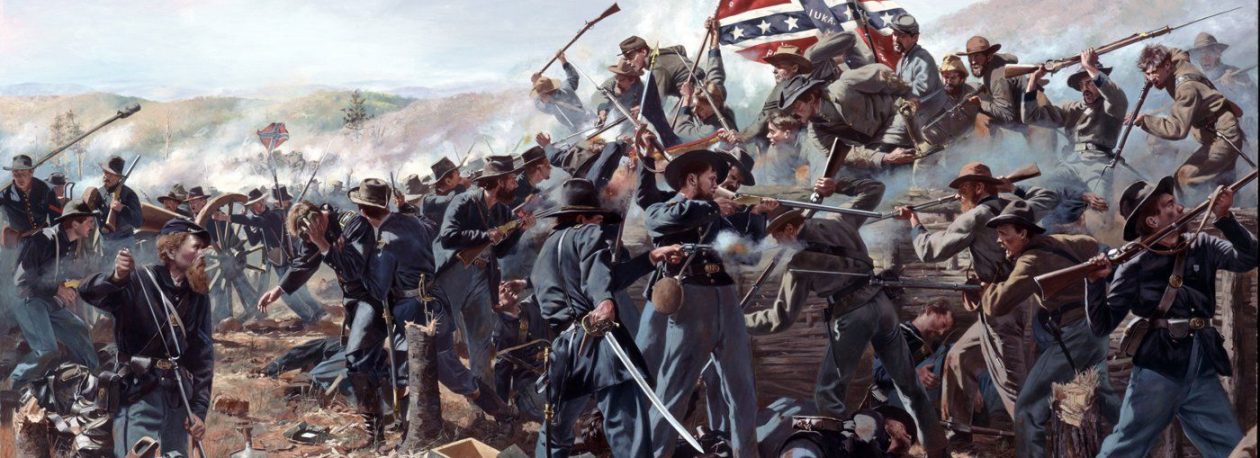
This letter was written by Horace Keyes (1833-1908), the son of Ely Keyes (1811-1843) and Melissa Howe (18xx-1881) of St. Joseph county, Michigan. After the death of Horace’s father, his mother remarried Friend Curtis, moved to Indiana, and the Keyes children were distributed to other families.
Horace enlisted as a corporal in Co. D, 25th Michigan Infantry—a regiment that was organized at Kalamazoo and mustered into the service in September 1862. The regiment was sent to Louisville where it remained some five weeks before receiving marching orders to Munfordville, Kentucky, from which place Horace wrote this letter.
In the 1850 US Census, Horace was enumerated in the household of Phineas Farrand (b. 1820), a farmer in Colon, Michigan. Horaces’s brother, George Keyes (1830-1904), was enumerated in the household of a nearby farmer named Gilbert Van Deusen Liddle (1807-1884) whose sons, Henry and Charles, served with Horace in Co. D, 25th Michigan, and whose daughter, Caroline Liddle (1835-1902), married Horace’s brother, George Keyes—to whom this letter was addressed.
In the 1860 US Census, Horace was enumerated in the household of Wealthy Mathewson in Colon, Michigan.
See also—1862-63: David S. Chapin to Margaret (Terwillinger) Chapin
TRANSCRIPTION
Munfordville, Kentucky
December 20th 1862
Well, George, I received your kind and welcome letter the 17th of this month and was glad to hear from you and to hear that you was all well and enjoying the comforts of life for that is something I have not enjoyed for most two weeks. I have had one of the worst colds that I ever had in all my lifetime.
We started from Louisville on Wednesday the 10th, marched through to Munfordville, and arrived there the morning of the 17th about 10 o’clock—the distance being 74 miles. You may think that is not very large marching but I tell you that a good many of the men tired out before they would get there 12 miles. I stood it very well considering my health although I did not carry my knapsack and, in fact, there was but very few of the well ones that carried theirs. ¹
I am a sitting up this afternoon for the first time since yesterday morning. Henry and Charley is both well. ² Charley is out on picket today. Henry—he has left us for a short time so as to learn to be an artilleryman. You see we have been presented with two big guns—one of them is a six-pounder and the other is a ten-pounder. The 10-pounder was used at the Battle of Fort Donelson. I said Henry had left us for a short time [and] you might think he had left our camp but he has not. He [still] bunks with Charley and me every night but he does not drill with us any more—that is all.
Bill Robbins is sick at the hospital with the measles. Jason B. Saylor—a fellow that lived out near Jim Gorton—was out on picket guard last night and he laid down his gun to button up his coat and when he picked it up, he took hold of it around the muzzle with his right thumb over the muzzle and drawed it along. And the hammer caught on a stone and drawed it back far enough so when it came down, it went off and shot his thumb of between the first and second joint. ³
Warren E. Green was taken sick the 11th of November and has not done a thing since. He was in my tent today and he said he had made an application for a discharge but he said the doctor told him he would have to go to the general hospital before he could get one.
I got a letter from [Edward] Payson Whitmore. He was at Cincinnati. He says he expected to get his discharge before long.
George, I am a thousand times obliged to you for that 2 dollars you sent me although I have not used it yet and I do not know as I shall just yet unless I come across a pair of gloves. George, I have got an ostrich feather. I have been a thinking of sending [it to] Ely and if I do, you will find it in this letter. Henry [M.] Liddle has sent home for a box of provisions and you may put in a little something for me. No more this time. Goodbye George.
From Horace Keyes
¹ David S. Chapin of Co. A, 25th Michigan, also participated in this march from Louisville to Munfordville. Writing his wife from “Camp Despair” in Munfordville, David wrote his wife: “We had a good time except the last day it rained all day. The mud was very bad. It made traveling very bad for our teams. I stood it very well. We marched 73 miles. The Colonel let us take our time. It is an awful country that we marched through.”
² “Charles and Henry” were undoubtedly Charles Marcellus Liddle (b. 1842) and Henry Mathew Liddle (1841-1864) from Colon, Michigan. Henry died in camp at Bowling Green, Kentucky, on 28 February 1864.
³ Jason Bradley Saylor (1832-1901) was from Nottawa, Michigan. Jason initially enlisted as a private in Co. C, 6th Michigan in August 1861 but was discharged for disability in October 1861 after only two months service. He enlisted in Co. D, 25th Michigan in September 1862 but was discharged for disability in April 1863 after a little over 6 months service. Jason was the son of Johann Frederick Saylor (1798-1876) and Abigail Goodhue (1792-1864).


